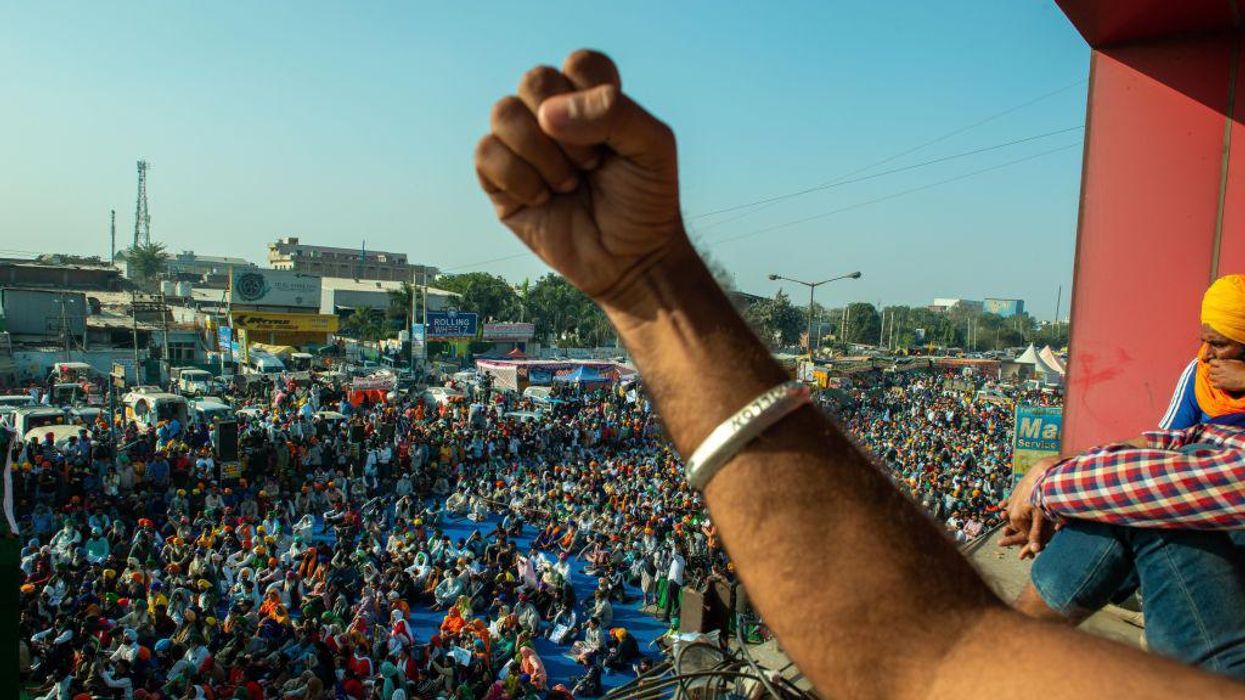
Pradeep Gaur/SOPA Images/LightRocket via Getty Images
India's farmers in revolt
Although most of the world outside of Asia remains oblivious, it is possible that the largest protests in human history are occurring right now in India, as an almost innumerable mass of farmers has risen up in protest against reform measures intended to improve the country's flailing agricultural economy.
For years, the Indian government has provided guaranteed minimum prices to Indian farmers, and also kept in place a series of laws that has prevented consolidation of farmland into larger tracts. The system was designed to protect small farmers and provide them with reliable, stable income. The average farm in India is less than three acres.
As you might have guessed, however, the system has caused India to fall catastrophically far behind the rest of the globe in farming efficiency. And additionally, while the system has provided a basic subsistence living to many farmers, it has effectively kept them trapped in poverty. According to some estimates, over half of India's workforce currently works on farms, but farms only account for less than one-sixth of India's economy.
By way of comparison, the entire agricultural and food sector in America employs about 10% of its population and represents about 5% of its economy.
The system is, by any measure, not making any money for anyone, and also isn't doing a great job of providing food. In ordinary times, the sheer weight of the number of people working on farms provides enough food for India, but because the Indian agricultural system is so dependent on human labor, it is especially sensitive to disruptions in the labor market, which is one reason why India's food supply has been disproportionately affected by the COVID-19 pandemic, relative to other countries.
The government has responded with a series of reforms, some of which are merely proposals at this point, and others of which were rammed through into law using parliamentary tactics that have even been criticized by the reforms' proponents. The government wants to allow private buyers to purchase the products produced by Indian farmers, instead of requiring farmers to sell to the government. They also want to relax laws regarding consolidation of agricultural land.
The farmers believe that these reforms — which are widely considered by economists to be necessary to the modernization of India's entire economy — will end up driving them off of their family farms, which they believe will be consolidated and eaten up by large farming corporations.
Huge.
The protests began in August and have grown in both intensity and size since. Reliable estimates of crowd sizes are difficult to come by because of the sheer number of people involved. According to one estimate, during Tuesday's protest alone, protesters jammed shoulder-to-shoulder clogging over 19 miles of major highways in Delhi, suggesting that at least tens if not hundreds of thousands were present.
Some estimates have suggested that the number of people who have protested nationwide in India since the protests began has been over 200 million, which would certainly place it in the running for the largest protest in human history.
India's farmers announced a general strike on Nov. 26, which involved more than 250 million farmers, thus making it almost certainly the largest organized strike in history.
The strike and accompanying protests — which have included farmers burning their fields and a heavy-handed government response that has caused scattered violence — has brought the country to its knees.
Prime Minister Narendra Modi's government is now negotiating with the heads of farmer unions to see if a compromise is possible that will get India's farmers back to work. Thus far, farmers have rejected those proposals and have promised that unless the reforms are repealed, they will escalate their protests and continue to bring life in India to a halt.
Leon Wolf
Former Managing Editor, News